choose a subject for more information
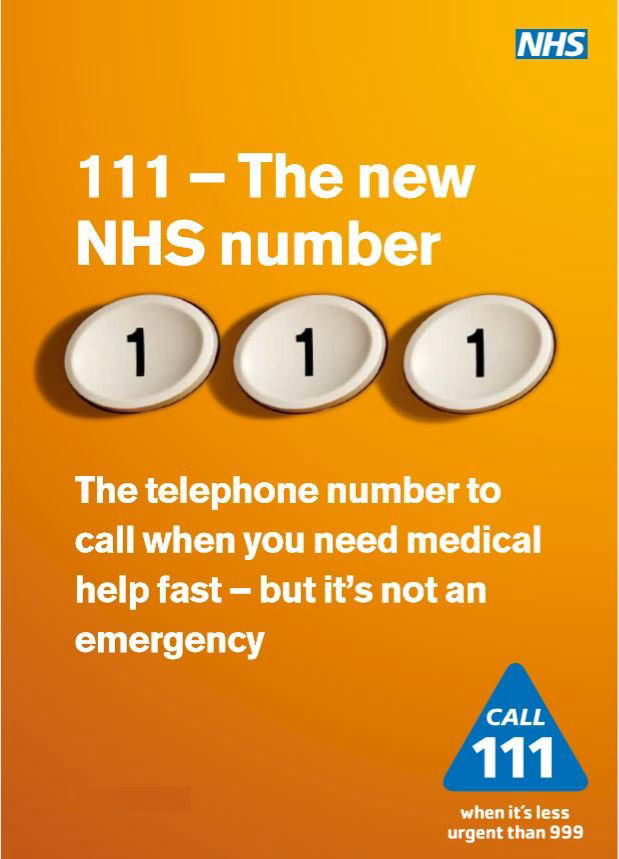
The new telephone number for NHS Direct Wales and Shropdoc GP out of hours services.
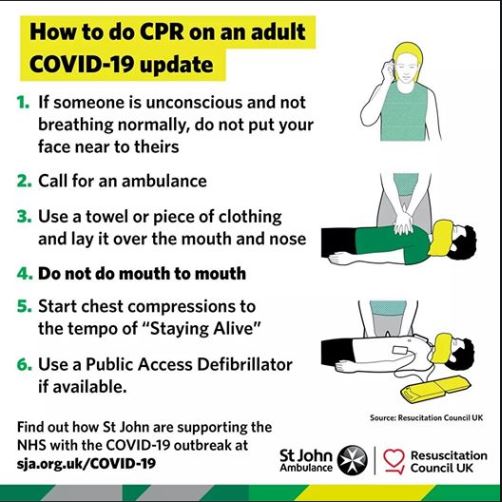
Due to the Coronavirus Pandemic, there are immediate changes to the way Resuscitation is provided.
DO NOT DO MOUTH TO MOUTH!
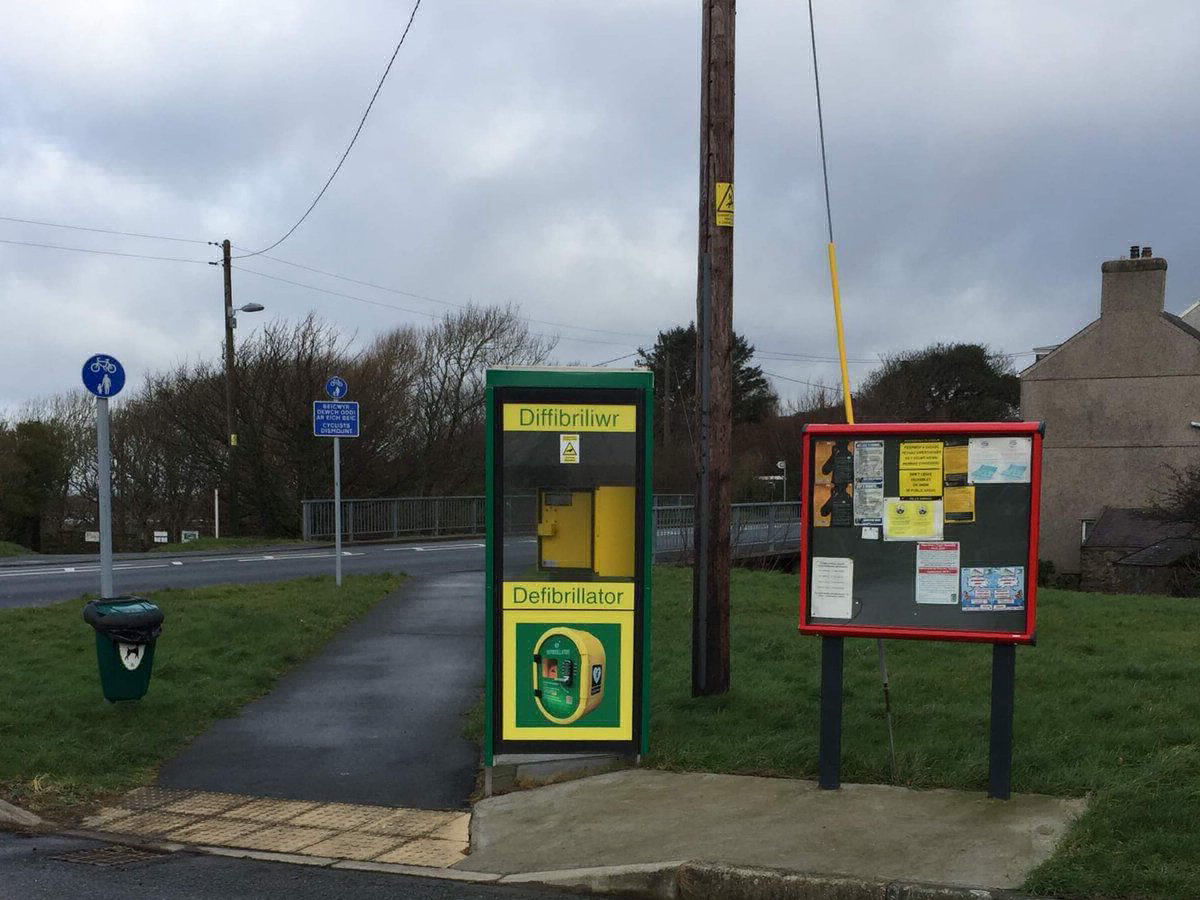
Many communities, sports clubs and businesses have raised or invested money in purchasing a Defibrillator, many have made use of old telephone kiosks and are placed at the heart of the local community, others are tucked away inside clubs, shops or in business premises.
The Welsh Ambulance Services NHS Trust and South Wales Defib Alliance are appealing to those who have or are responsible for a Defibrillator to register it's location. Having up to date information of its location can assist the 999 operators to guide bystanders to the nearest unit if there are any delays in the emergency services attending, which is quite often in our rural areas.
Credit to: National Pubwatch
Credit to: National Pubwatch
Many of us are now taught First-Aid as a requirement for work, and it is law to have a qualified first-aider in any office, factory or workspace that has more than five persons.
But as parents we should learn first-aid in case something happens to our children at home, on way to and from school or at the park.
Basic and advanced courses are cheap and regularly run by both the St. John Ambulance and the Red Cross. (see buttons below)
Everyone should learn basic first-aid, it could save a life !
Credit to: BRIGHT SIDE
It doesn't matter where you are in the UK, or what telephone you use, the number is the same!
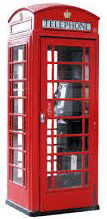
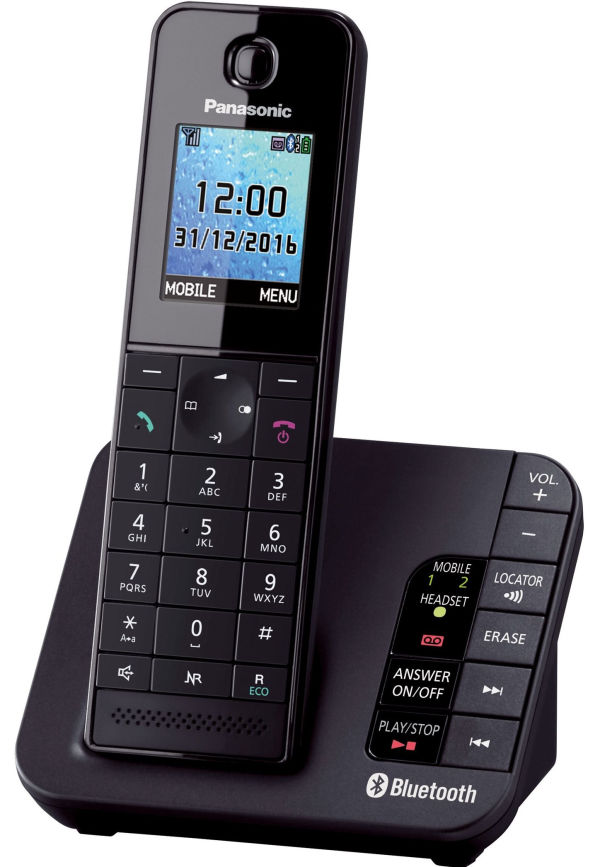
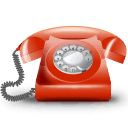
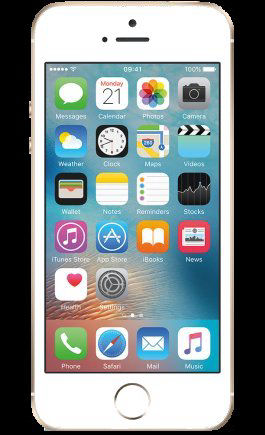
TRY TO HAVE THE FOLLOWING INFORMATION TO HAND.
EVENT DESCRIPTION.
e.g. Road Traffic Collision, Fall, Electrocution, Collapse, Seizure or Fit, Chest Pains etc.
EXACT LOCATION:
Door number, Road name, Town name, Postcode if known.
If in a rural area give the nearest Road Junction.
If on a motorway, the Direction of travel (NSEW), the nearest Junction / Exit and if it is behind or ahead of your direction of travel. ID Numbers on nearest post or sign. and if available GPS Map reference, or 'What 3 words' reference.
CASUALTY DETAILS:
Number of and Sex, Approximate ages, State of consciousness, if breathing, any injuries known.
YOU MAY BE ASKED TO REMAIN ON SCENE AND REMAIN ON PHONE UNTIL THE EMERGENCY SERVICES ARRIVE.
In mountains, hills, or very rural areas it may not be possible to give the name of a road or building, so we need other ways to pinpoint our location in emergencies.
Sat-Navs and most mobile phones use Global Positioning Services (GPS) and can show an accurate map GPS reference through a variety of 'Apps' such as 'TomTom', 'Google maps'.
If you live in a rural area, obtain your exact Ordinance Survey Map reference and place it on a sticker beside your home telephones.
There is also 'What3words', this is a free downloadable app for all types of mobile phone, it can pinpoint any position to within inches, and has now been taken on by the Emergency Services. (See video).